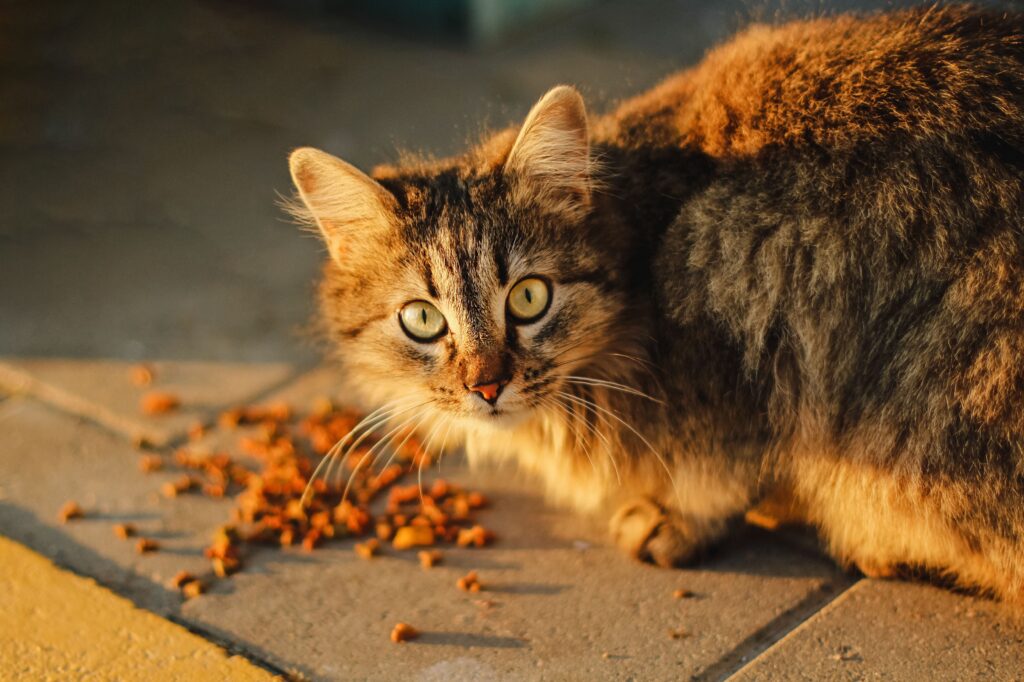Who doesn’t love avocados? This delicious fruit is packed with healthy fats and nutrients that can benefit humans in many ways. But if you’re a cat owner, you may be wondering whether your feline friend can also enjoy this superfood. After all, cats have different dietary needs than we do, and some human foods can be toxic to them. So, can cats eat avocados? The answer is not so simple! In this article, we’ll explore everything you need to know about feeding avocados to your furry companion and how to do it safely. Let’s dive in!
Can cats eat avocado?
Avocado is a popular fruit that has gained fame for its health benefits. However, when it comes to cats, avocados can be tricky. The answer to whether cats can eat avocados depends on certain factors.
Firstly, the flesh of the avocado is not toxic to cats and can be consumed in moderation. It contains healthy fats and nutrients like potassium and fiber that may benefit your cat’s health.
However, you should never feed your cat avocado skin or pit as they contain persin – a toxin that can cause vomiting, diarrhea, and heart problems in felines.
Additionally, some cats may have an allergic reaction to avocados. Symptoms of an allergy may include itching, swelling around the mouth or face area ,or difficulty breathing.
It’s important to note that while small amounts of avocado are generally safe for most adult cats; kittens under six months old should avoid them altogether due to developing digestive systems.
When are avocados bad for cats?
As much as avocados are a delicious and healthy treat for humans, they may not be safe for cats to consume. Avocados contain persin, a toxin that can cause vomiting, diarrhea, and other gastrointestinal problems in cats.
Persin is found mainly in the leaves, seeds, and bark of the avocado tree. However, small amounts of persin are also present in the fruit itself. While some cats may have no adverse reactions to eating small amounts of avocado flesh or pulp, others will exhibit symptoms within hours of ingestion.
It’s important to note that ripe avocados contain less ppersonthan unripe ones since most of it is concentrated in the fruit’s skin and pit. Even so-called “safe” parts like the flesh still contain trace amounts that could harm your cat if consumed excessively.
If your cat has eaten large quantities of avocado or shows signs such as vomiting or diarrhea after consuming any part of this fruit-like food item; contact your veterinarian immediately. In severe cases where additional medical care is needed – prompt attention from a pet healthcare professional should always be sought out right away!
Overall – while you might enjoy sharing an occasional bite with your feline friend; it’s best to avoid feeding them anything containing avocado altogether!
How to safely feed avocado to cats
Avocados contain persin, a toxin that can be harmful to cats in large quantities. However, the flesh of the avocado itself is not toxic to cats and can arovide some health benefits when fed in moderation.
If you want to feed your cat avocado, it’s important to do so safely. First and foremost, make sure the avocado is ripe and free from any mold or brown spots. Remove the skin and pit, as these parts contain higher levels of pperson
Next, cut the flesh into small pieces or mash it up into a puree. Mix it with your cat’s regular food or offer it as a separate treat in small amounts. Watch for any signs of digestive upset such as vomiting or diarrhea after feeding.
It’s important not to overfeed your cat avocado or use it as a substitute for their regular diet. Avocados should only make up a small portion of their overall diet and should never be given every day.
As with any new food introduction for your pet, always consult with your veterinarian before adding avocado to their diet. They can help determine if this fruit is safe for your cat based on their age, health status, and dietary needs.
Can Cats Eat Avocados

Can Cats Eat Avocados
What to do if your cat eats too much avocado
If your cat accidentally eats too much avocado, it’s important to act fast. The first thing you should do is contact your veterinarian or a pet poison control center for advice.
Avocado contains persin, which can be toxic in large amounts. Symptoms of avocado toxicity include vomiting, diarrhea, and difficulty breathing. Depending on the amount ingested and the size of your cat, it could potentially lead to more serious health problems.
Your vet may recommend inducing vomiting or performing other medical treatments depending on the severity of the situation. It’s crucial to follow their instructions closely as every case is different.
To prevent future incidents like this from happening again, make sure to keep avocados out of reach from your feline friends. Store them in a secure location such as a refrigerator or closed cabinet.
Remember that prevention is key when it comes to keeping our pets safe and healthy.
Final Notes: HOW TO TRAIN YOUR DOG TO HEEL?
Final Notes
Avocados can be a healthy addition to your cat’s diet in moderation. They are a good source of healthy fats and nutrients, but also contain persin which can be toxic to cats if consumed in large amounts.
Always remember that feeding your cat too much avocado or any other human food can lead to digestive issues and nutritional imbalances. It is best to consult with your veterinarian before making any changes to your cat’s diet.
The key takeaway is that while avocados may seem like a tasty treat for cats, they should only be given as an occasional snack and always in small amounts. By properly introducing avocado into your feline friend’s diet and following these guidelines, you can safely enjoy this delicious superfood together!


